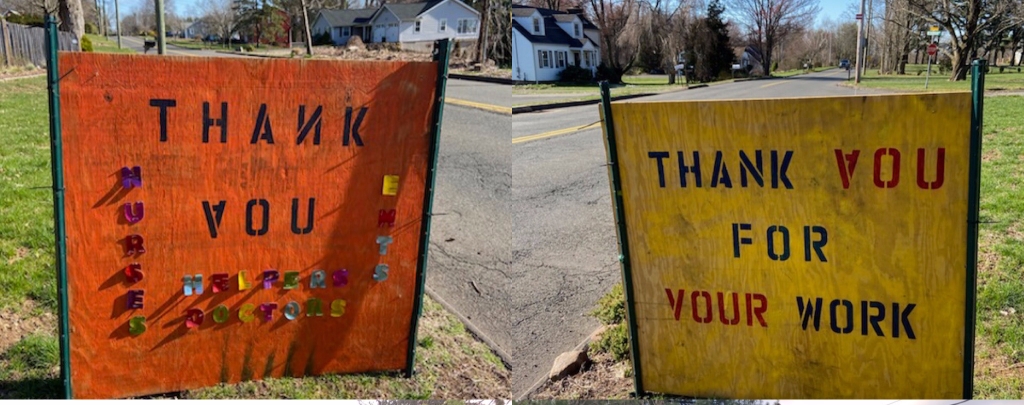The other day, I rolled out of bed pretty late, because I just couldn’t stop listening to Sugar Calling, the new Cheryl Strayed podcast. I heard a common thread running through Cheryl’s conversations with Alice Walker, “Whatever We Have, We Have to Work With It,” Judy Blume, “A Terrible Thing Is Happening, but the World Goes On,” and Pico Iyer, “Joyful Participation in a World of Sorrows.” When I finally meandered downstairs to make my ugly happy smoothie (cooked beet, coconut milk, ginger, five spice, spinach, and a few drops of rosewater) my husband presented me with a hand-addressed envelope out of our pile of stalemail—mail that had been untouched for 24 hours since our postal worker dropped it in the slot.
I opened a gorgeous card with a Japanese aesthetic; a collage created with scraps of handmade paper by our friend, the artist Tricia Bath. She’d incorporated a 13th Century quote from Rumi, one that resonated with the thoughts of the contemporary writers I’d heard on the podcast that morning, “Be grateful for all you receive, good and bad alike, for it may be a gift.”
Gentle Reader, I don’t blame you if you roll your eyes over another Rumi quote. Stay with me. All of us have lost something while living through this pandemic. You may assume that if I’m still blithely quoting Rumi, I haven’t yet lost enough. So far, Covid-19 has been less of a challenge for me than it has for those people who have lost their jobs, their loved ones, or their health—or for those people who have kept their jobs, and have had to take on the additional jobs previously performed by their nannies, their children’s teachers, their parent’s caregivers.
Unlike many, I am not overburdened. I am not lonely. I am not grieving. I am not bored. I am not deprived of touch or deprived of keeping in touch—I still have telephone service and wi-fi. All of this is to say, Covid-19 is a catastrophe on a grand scale, and it would be irresponsible for me, the most peripheral of its victims, to dismiss it with a platitude of gratitude.
Except.
Gratitude is not a platitude. Whenever we feel lost, gratitude is our road home.

When my mom texted our far-flung family with pictures of homemade sign my father had created and posted by the side of their road, the challenge was on. The front of my house is premium real estate for thank you signs. Workers drive by on their way to the VA, Children’s Hospital, and university hospital.


I’d wanted to make signs that look uplifting, but I have crappy eye hand coordination and no visual aptitude; the best I could do was make signs that look kind of Gothic and creepy and desperate. I’m sorry about that.
Without exception, every day I encounter a gift someone has made in response to this Covid-19 catastrophe. If nothing else, I receive the gift of my husband’s delicious cooking, all made within the confines of my many allergies and sensitivities (no dairy, wheat, gluten, nightshades, egg, peanut, walnut, strawberry, mango…etc.)
On my worst Covid-19 day so far, the day of my comeuppance, I came back home laden with guilt and shame, only to be presented with a stalemail package that was unusually light; a gift from my friend, the singer, actress, and writer Barb Timmons. When I opened the package, I discovered this lovely note and origami figure.

Is it a coincidence that both of the stalemail gifts I am mentioning owe a debt to Japanese design? I think not. Mainstream white America has defined itself more by avarice than by adversity, making us less aware of the beauty, power and dignity we all do in fact possess in times of oppression and catastrophe.
I know very little of Japanese culture, but one day, when I had a few hours to spare between appointments at the NIH, I took the opportunity to visit an exhibit at the Smithsonian titled, “The Art of Gaman.” Gaman means “to bear the seemingly unbearable with patience and dignity.” The exhibit featured arts and crafts created by the internees in the Japanese American concentration camps during World War II. These objects were made by average citizens without any trained artistic skills. They were dazzling. They gave me the strength to persevere through whatever challenges awaited me back at the NIH that day.
We are not weakened by catastrophe. We are strengthened. Maybe not right away, but eventually. Gentle Reader, today is Mother’s Day. If you have not received a gift today, indulge yourself by giving one.
I am grateful for your time. Be well.



